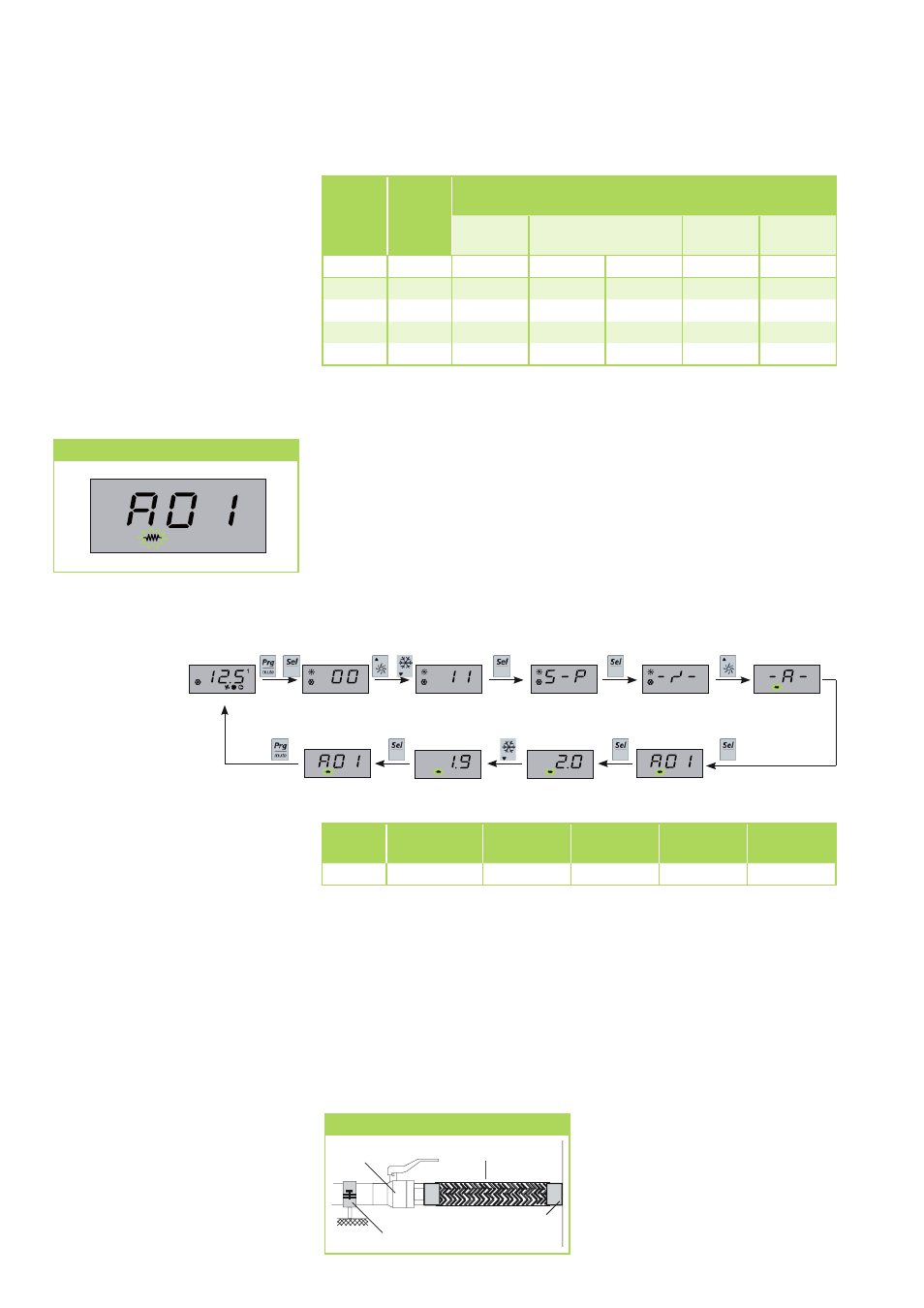Remko rvs...h (inox) – REMKO RVS 60 H User Manual
Page 24

Configuration antifreeze protection parameters
It can be necessary to reconfigure the antfreeze protection parameters
when using a water-glycol mixture. Under menu item -A- the parameter
A 01 can be changed within the limits of parameter A 04 and A 07.
Factory setting:
Activation antifreeze protection fault Parameter A 01 =
+2.0 °C
Upper antifreeze protection setting
Parameter A 04 =
+4.0 °C
Lower antifreeze protection setting
Parameter A 07 =
- 40.0 °C
The following program sequence must be programmed.
The following values must them be input:
Configuration parameter Ar 03
0% Ethylene
glycol
(Factory setting)
10 % Ethylene
glycol
(Password)
20 % Ethylene
glycol
(Password)
30 % Ethylene
glycol
(Password)
35 % Ethylene
glycol
(Password)
Value A 01
4°C
0°C
-4°C
-13°C
-17°C
short-term
short-term
short-term
min. 5 sec.
+
...
repeated
short-term
short-term
short-term
short-term
+
Propor-
tion
glycol
Antifreeze
protection
+-2°C
Correction factors when using
a mixture of glycol* and water
Cooling
output
Compressor input
Cooling Heating
Medium
flow
Pressure
loss
Vol. %
°C
K
L
K
P cooling
K
P heating
K
V
K
D
0
0
1
1
1,012
1
1
20
-9
0,981
0,988
1,012
1,040
1,19
35
-21
0,971
0,982
1,018
1,090
1,35
40
-26
0,968
0,981
1,019
1,105
1,51
*
We recommend using an ethylene glycol mixture. Observe the safety and product data sheets
for the glycol type being used.
This mixture ensures frost protec-
tion to –20°C; at lower tempera-
tures, an ice porridge forms which
has no more expansion effect.
The toxicologically harmless
propylene glycol should be used if
there is a risk that the medium can
come into contact with drinking
water or food stuffs. To maintain
the expansion effects, a proportion
of 38% is necessary as a rule
Diaphragm expansion vessel
To avoid pressure fluctuations
during non circulation because of
temperature changes, expansion
vessels filled with nitrogen (moisture
neutral) must be integrated in the
system.
The unit’s standard equipment
includes one expansion vessel. The
preliminary pressure must be set on
the system; an increase in volume
or, in the event of a cooing-heating
system, the installation of another
expansion vessel may be necessary.
Safety valve
Safety valves limit excess operating
pressure due to over heating or
overfilling of the operating me-
dium. The valve outlet requires
unobstructed drainage into a drain
pipe. Applicable local disposal
regulations must be observed if
glycol is used.
The standard scope of delivery for
the unit includes a safety valve; an
additional valve may be necessary.
Compensators
Compensators are used to connect
lines to the unit to prevent
vibration in the system from been
transmitting to other parts of the
system.
Compensators
Ball valve
Compensator
Structural
fastening
unit connection
REMKO RVS...H (INOX)
24
